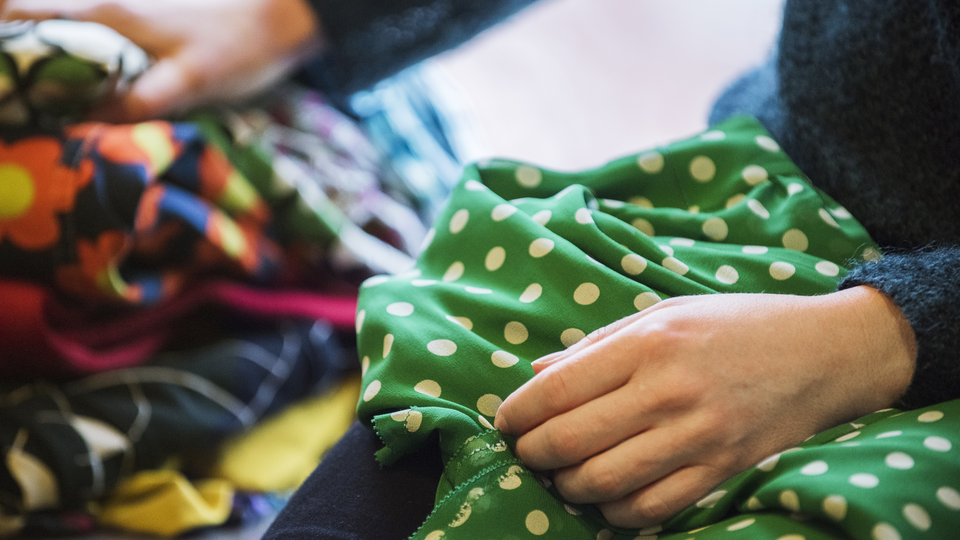
Sustainable clothing futures
What do the sustainable value chains for future clothing look like? It is to be found out by IVL Swedish Environmental Research Institute, the University of Borås and Profu in an interdisciplinary research project.
In Europe, we consume an average of 26 kg of textiles per person per year, of which 60% are clothes. Lower prices and fast fashion habits have doubled clothing consumption and increased waste volumes over the past 15 years. Many garments that could have been reused or recycled today end up in the residual waste, which in best case goes to energy recovery (incineration) or in worst case is put in landfill, something that is common abroad. It is estimated that every Swede throws away an average of eight kilos of textiles per year, which is almost 200 tonnes of textile waste every day.
To counteract this development, we need to change the way we consume clothes. The project Sustainable clothing futures, led by IVL, covers several aspects of sustainability in the clothing industry. Among other things, there will be a mapping of consumer behaviour linked to new business models, for example subscription of clothes. New techniques for production and recycling are going to be investigated and political measures for a more sustainable clothing industry and consumption will be evaluated. The effect of e-commerce, home delivery and returns will also receive extra attention as it can increase transport.
The project, carried out by an interdisciplinary research group, will combine field studies in consumption behaviour with the construction of system dynamic scenarios, life cycle analysis and policy analysis. It will provide insights into the motives and factors that affect the clothing industry in the transition to a more sustainable industry. During the project, input from various stakeholders, including consumers, representatives from the clothing and recycling industry and decision-makers, will be used to create scenarios for future value chains for clothing. The scale-up through scenarios will also clarify the potential for creating new roles and jobs in the European clothing industry in the future.
The project includes researchers and employees from the IVL Swedish Environmental Institute and the University of Borås, including the Swedish School of Textiles and Science Park Borås, as well as the environmental consulting company Profu. The project runs until the end of 2024 and is financed by Formas. The project is linked to the research groups Textile Value Chain Management and Digital consumption, at the University of Borås.
Do you want to contribute to the project?
Can you imagine sharing your experiences of renting clothes, buying and selling second hand, or repairing your clothes during a trial period? We are now looking for participants who want to contribute to this research project in clothing consumption with a focus on second hand, renting or repairing.
You can register your interest by sending an email to emma.samsioe@ism.lu.se, reka_ines.tolg@ism.lu.se or niklas.sorum@hb.se.
Project facts
- Project: Sustainable clothing futures
- Financier: Formas
- Announcement: Formas research project
- Budget: 7 860 198 SEK
- Period: 2022 - 2024
Contact
Want to know more about IVL's services and offers? Enter your email address and choose which area you want to know more about, and we will get back to you.

